

With the Thistle Hotel in Exeter having been subject to much cleaning and renovation (and the re–adoption of the name Rougemont in its Title) one might like to look back to the time of its original construction and the connection Garton & King had with its equipment and facilities:
In the basement are the kitchens, laundry, offices a strong room, cellars, stores and sleeping apartments of the kitchen servants. The Cooking Apparatus consists of a couple of ranges supplied by Messrs Garton & King and the same firm have supplied the fittings for the Laundry, which is close by.
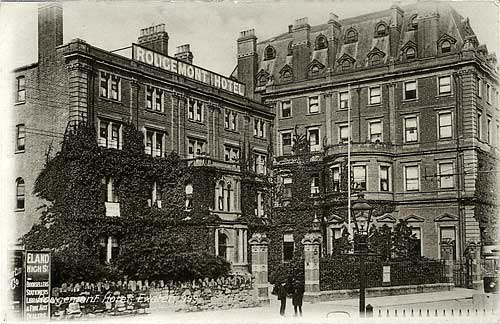
This Postcard of the Rougemont Hotel was taken in the era of Exeter’s Trams. A glimpse of one can be seen to the bottom right of the picture. The hotel is far less clinically clean as it is today, with creeper growing up the walls and a far more attractive frontage than today. The ornate pillars are long gone and so, unfortunately, are Garton and King’s Railings visible behind an equally ornate street light. The advert for Elands on the billboard is of interest as the Eland Family is related to the Holladays through our maternal Grandmother, Mrs Beatrice Holladay (nee Eland), one time of Crescent House (See 3 Pennsylvania Crescent – Railings)
Not exactly the most widely read publication around at the time but it went into far greater detail and for those of you who are familiar with the Hotel or are Exeter residents you may be interested in the information the article contained:
“..it stands on the site of the old City Prison and overlooks the Queen Street (now Central) Station. The building, that has been erected by a joint-stock company, is of brick with Beer and Bath stone dressings. The floor of the large central hall of the hotel is of an encaustic tile supplied by a Messrs. Craven, Dunnell & Co. The Hall is 60ft long, 20ft wide and about 30ft in height, running up to the level of the second floor. It is supported to the 1st floor level by Doric Columns and above these the support is continued with Corinthian Columns. A corridor runs around the central hall on the first floor. The Coffee Room is situated in the wing that juts out into Queen Street. Its length is 60ft, width 30ft and height 19ft. Four Doric Columns carry the box girders which form the panelled ceiling. The approach to the first floor is by means of a grand staircase 6ft wide. At the head of the staircase is a window to be filled buy a Mr. Drake, of Exeter with a stained-glass representation of the Royal visit to Exeter, when the King gave the name of Rougemont to the Castle. The kitchen is among the twenty five compartments in the basement, and here two large ranges have been fixed by Messrs Garton & King and the same firm is about to fit up the laundry and its extensive steam drying room. It is intended to erect stables at the back, and also a large room for balls and concerts. The building was designed by Mr. C. E. Ware A.I.C.E. of Exeter, the quantities being taken out by Mr. Charles Gould of London. The Building has been constructed by a Mr. James Matcham of Plymouth; with Mr. Hallet as foreman and Mr. William Gill has been the clerk of the works. The plumbing, electric bell apparatus and gas-fitting is the work of Mr. E. Whipple, Plymouth; the glazing has been carried out by Cashmore, Bristol; the lifts supplied and fitted by Messrs Waygood & Co, Leeds; the kitchen and laundry fittings by Garton & King, Exeter; the paperhangings by Bradley & Sons, Exeter; the locksmith’s work has been done by Mr. S. Pearse, Exeter. The hotel is to be opened for business by the 1st of May. The cost of the building has been about £21,000.”
Much of Garton & King’s work has been in the Public sector. Heating and Cooking equipment has been installed in many Public Hospitals and Asylums and one shouldn’t forget that for a time provision of Water Supplies and the work that entailed also made up part of G & K’s agenda.
Truro Union Workhouse has recently been savagely “modernised” and “converted” into select housing (and re-named!) and only externally bears any semblance to how it once looked. This photograph I took in August 2009.
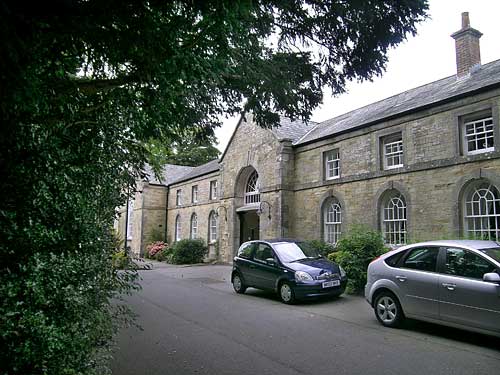
Here is an extract from a newspaper relating to the modernising of Truro Workhouse:
“Messrs. Garton & King, Engineers, Exeter, have just completed the installation at Truro Workhouse of a cooking apparatus, hot water system, and Laundry appliances, modelled on modern lines, and fitted with all up-to-date improvements. The high testimonials won by the firm for similar installations at Axminster and Honiton Workhouses, and their renown as hot-water and sanitary engineers, have been increased by the splendid system that Truro Workhouse now possesses.
The cost £950 (about £86,000 according to Google) appears an extravagant item to an outsider, but the manifold benefits the installation confers in the economy and efficiency in cooking, the saving of labour in the laundry, and the warmth, and comfort, in the quarters of the aged and deserving poor, more than recompenses for the temporary burden on the ratepayers.
A new Boiler House has been erected in a central position, and fitted with an 8hp Cornish Boiler, from whence steam is conveyed to the three 30 gallon steam jacketed cooking pans which are mounted on open stands, lagged with hair, felt and wood and covered by brightly burnished copper lids with counter balance weights and chains. The vegetable and fish steamers are likewise connected with the same steam service pipe, and by the agency of steam a water heater is capable of supplying 180 gallons of boiling water per hour, which is distributed therefrom over the main building, supplying the scullery, baths and various draw off cocks. From the Cornish Boiler the underground pipe conveys steam to the laundry, where the water in the washing trays and the copper furnaces is heated by steam, which will bring a furnace full of water to boiling point in 20 minutes. In the room adjoining the laundry a closet containing ten improved drying horses has been erected, and is heated by a steam coil.
Messrs Garton & King have supplied a hydro-extractor for the laundry, and in the hospital laundry the water is heated on the same principle as in the main laundry, and a coil of steam pipes furnishes the heat for the hospital drying closet. Underground pipes carry steam into the hospital, and connect with a water heater which is capable of supplying 124 gallons of boiling water per hour for the baths, hot water taps, kitchen and scullery.
An Exonian kitchen range designed and manufactured by Garton & king has been erected in the kitchen. It contains a baking oven, and large roasting chamber, and is fitted with a large boiler with flow and return pipes to a large cylinder which supplies hot water for the kitchen. The three dilapidated copper furnaces which have for years served the double purpose of cooking the food supply of the House and heating the water, form a striking contrast to the modern and improved system which the Board have had the enterprise to provide. Hitherto the supply of hot water was only sufficient for two or three baths at a time, whilst under the new arrangements the House possesses an almost unlimited supply of hot water, and the cooking is carried out under the most cleanly and economical conditions. About 2,000 feet of piping is included in the installation, which has gained the warm approval and admiration of the Guardians, and is a credit to the skill and workmanship of Messrs Garton & King who have done excellent work at Bodmin Asylum, and St Austell and Liskeard Work Houses.
Mr E. Hicks reported to the Truro Board of Guardians yesterday that Mr Tonkin and himself, the surveyors appointed by the Board to superintend the installation, had made a final inspection of the work, and found it satisfactory in every respect. He could truthfully say that Messrs Garton & King had fulfilled their contract faithfully, and a better foreman he never knew than the man who had carried out the work for the firm. He proposed that the Board give Messrs Garton & King a recommendation for the faithful manner in which they had carried out the contract – Mr. T Trudgian seconded the motion which was unanimously adopted.”
Needless to say Private Individuals were also pleased with the standard of service and Products provided by the Company – here is a small selection:-
“Penzance 9th February 1858.
My brother Mr Edward James, formerly of Exeter but now of Plymouth informed my some time since that he had a small cooking Apparatus of you that was ‘a perfect miracle of economy and usefulness’ I am now in want of one to perform the work now done by an ordinary Cornish Apparatus having both boiler and oven.”
The gentleman then gives dimensions & requirements and states that it should supply hot water and cook a plain dinner of 2 joints with vegetables for a family of 12 persons.
He points out that his family is ordinarily nine but he is subject to sudden fluctuations! the mind boggles. He requests an illustrated leaflet.
“Barton, Exeter August 31st 1852
Dear Sirs, I beg to say that the stove you put in my kitchen is the best I have had, it roasts admirably as well as bakes, steams and boils and will cook for a large family with a small quantity of fuel and having a very large supply of hot water at all times is a great convenience.
George Turner.”
The Rev: Sillifant, Weare Giffard, Torrington. Prior to 1865
“He, the Rev: Sillifant, has now given the kitchen range a month’s trial and finds it answers admirably – he wishes to know what Messrs Garton & Jarvis would suggest to prevent the water in the fountain boiling away so quick, which is the only fault he can find – he also requests that the bill may be sent him!”
Does this type of customer still exist?
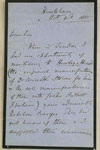
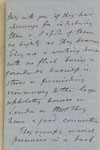
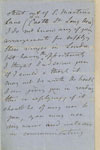
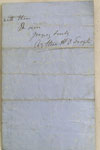 Huntsham Court - a Victorian Gothic Country House near Bampton, Devon. Built 1868 - 1870, to replace a derelict Tudor Mansion.
Huntsham Court - a Victorian Gothic Country House near Bampton, Devon. Built 1868 - 1870, to replace a derelict Tudor Mansion.
Most of the letters that have been kept are really quite difficult to read – this letter from Huntsham Court isn’t too difficult and is signed by the then owner, Arthur Troyte, back in 1855.
The gentleman signing the letter is Arthur Henry Dyke Acland Troyte, born 27 May 1811. It was a condition made by the Rev.Edward Troyte, who was more interested in Hunting than looking after his crumbling Tudor property, that on the inheritance of the estate by Arthur Henry he should adopt the surname Troyte (thence becoming Arthur Henry Dyke Acland Troyte) and undertake to live at Huntsham for at least six months in every year. Garton & King performed works within the Victorian House and at the adjacent Church, the restoration of which was completed in 1856.
See also:
Cooking Equipment — Heating Equipment — Stove Customers
144 Years of Newspaper Ads — Little Bit Unusual
Sitemap / Contents